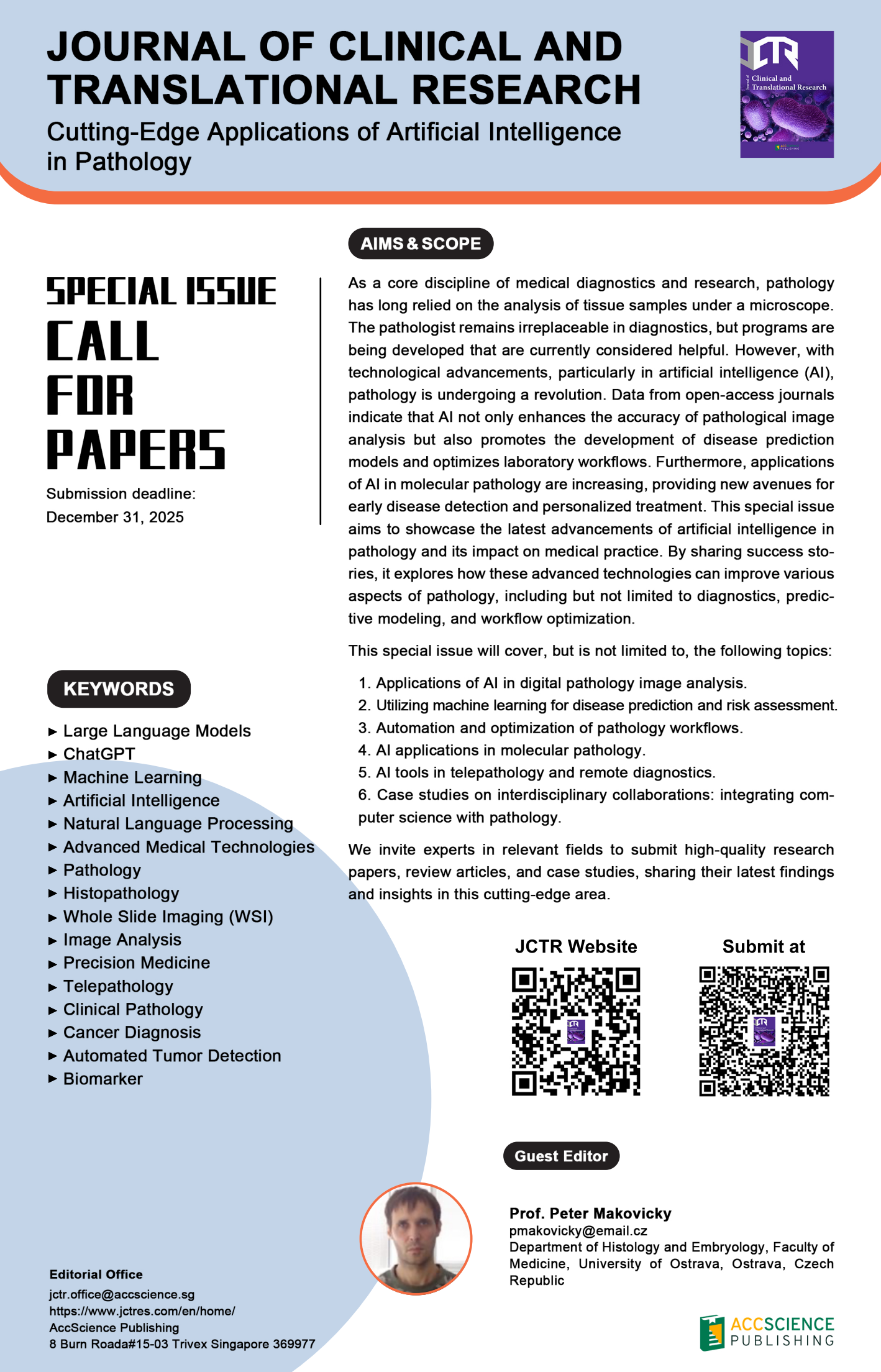
As a core discipline of medical diagnostics and research, pathology has long relied on the analysis of tissue samples under a microscope. The pathologist remains irreplaceable in diagnostics, but programs are being developed that are currently considered helpful. However, with technological advancements, particularly in artificial intelligence (AI), pathology is undergoing a revolution. Data from open-access journals indicate that AI not only enhances the accuracy of pathological image analysis but also promotes the development of disease prediction models and optimizes laboratory workflows. Furthermore, applications of AI in molecular pathology are increasing, providing new avenues for early disease detection and personalized treatment. This special issue aims to showcase the latest advancements of artificial intelligence in pathology and its impact on medical practice. By sharing success stories, it explores how these advanced technologies can improve various aspects of pathology, including but not limited to diagnostics, predictive modeling, and workflow optimization.
This special issue will cover, but is not limited to, the following topics:
- Applications of AI in digital pathology image analysis.
- Utilizing machine learning for disease prediction and risk assessment.
- Automation and optimization of pathology workflows.
- AI applications in molecular pathology.
- AI tools in telepathology and remote diagnostics.
- Case studies on interdisciplinary collaborations: integrating computer science with pathology.
We invite experts in relevant fields to submit high-quality research papers, review articles, and case studies, sharing their latest findings and insights in this cutting-edge area.


